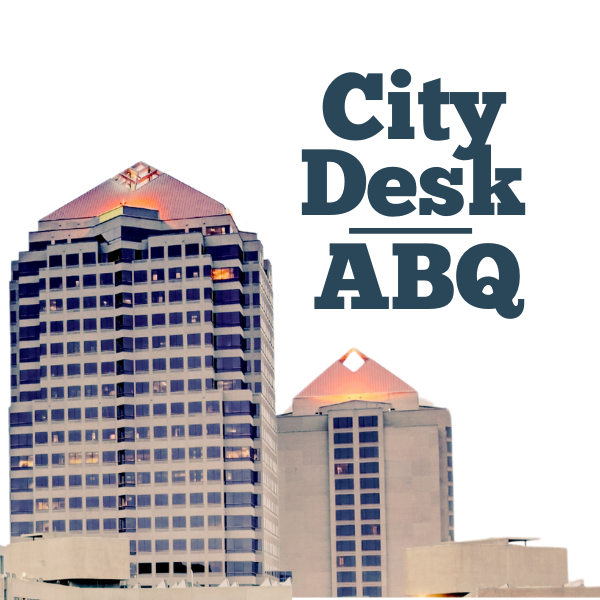Albuquerque city councilors voted to redesignate sections of Rio Grande, Indian School and Menaul boulevards as major transit corridors, a move that will pave the way for more frequent bus service along the North Valley routes over the next three years.
The 7-2 council vote in early September on Resolution R-25-175, sponsored by Councilor Tammy Fiebelkorn at the request of Council Services, updates the Albuquerque and Bernalillo County Comprehensive Plan to align with ABQ RIDE’s Forward Network, which aims for 15-minute bus service by mid-2027. While the change does not alter current zoning or require road construction, critics — residents, some councilors and business owners — worry it could reduce neighborhood protections, increase development pressure and worsen crime and homelessness.
What Changes
Bus service along Rio Grande, Indian School and Menaul Boulevards will increase from every 40 minutes to every 15 minutes by 2027, according to the resolution. The new designation also adds zoning incentives, such as reduced parking requirements and building height bonuses for workforce housing and structured parking.
“All this bill does is update our comprehensive plan to realize the fact that we are now going to be going to more frequent bus routes on this stretch of road,” said Fiebelkorn.
The resolution also makes clear that the change does not require or authorize road work, including roundabouts at the 12th Street and Indian School intersections with Menaul.
Community Shows Mixed Response
The mixed reception resulted in a 7-2 council vote, with Councilors Joaquín Baca and Louie Sanchez voting against the measure.
Patricia Willson wrote to the City Council after the vote, warning about future development impacts, noting that Major Transit corridors receive reduced neighborhood edge protections under city rules. While Fiebelkorn emphasized the resolution doesn’t affect current zoning or street design, she said it could influence future building height regulations near residential areas.
Peggy Norton of the North Valley Coalition said the change shifts development toward cars at the expense of pedestrian and bike infrastructure.
“Changing it to major transit changes development to auto-oriented,” she said, adding that “increasing transit was the goal of this change, but it is not needed to comply with the comp plan.”
Evelyn Rivera, a former real estate appraiser, said the proposal was “another attack on single-family home owners” and warned existing properties could be hurt by increased density and multi-family development.
The debate comes as the city moves to triple its transit security force in response to ongoing safety issues across the bus system.
Critics also questioned the timing, citing persistent driver shortages in the transit department.
Sanchez, who voted against the measure, said the plan is “a little bit premature” and suggested the council “revisit this in 2027 when we have enough [bus] drivers.”
However, some residents expressed support. According to the resolution, people at Near North Valley Neighborhood Association and North Valley Coalition meetings in May and June backed more frequent bus service, though they raised concerns about development impacts and neighborhood character.
The Transit Advisory Board unanimously backed the change, and several city departments offered favorable reviews, according to the resolution.
Jordan McConnell of the Transit Advisory Board said the Forward Network will bring buses every 15 minutes or less and that the redesignation “simply aligns our land use map with the transit service the city is planning to deliver.’
Support also came from Mark Byron of the Metropolitan Planning Organization and residents who cited benefits like reduced congestion and more mixed-use development.
The Metropolitan Redevelopment Agency said the change supports goals in the Menaul redevelopment plan, while the municipal Development Transportation Section said it complements Vision Zero safety efforts, according to the resolution.
“We want to thank the sponsor, councilor Fiebelkorn, for meeting with us and working to amend [R-25-175],” said Merrill Tully, president of the Near North Valley Neighborhood Association.
Tully said she supports more buses west of 12th Street but noted her board had not voted on the amended plan and previously opposed the redesignation west of I-40, citing “increased commercialization” and impacts on housing.
An industrial business owner along the corridor told CityDesk, he questioned whether more frequent buses would help local operations or customer access and said outreach failed to reach businesses like theirs.
“This is an industrial area, always has been, and literally that’s what it was designed to be,” the owner said, noting nearby companies include a bolt supplier, sign maker and furniture builders rather than retail shops.
They said the bus service was “completely irrelevant to my business” and said there is “literally zero chance” their company would benefit.
Implementation Timeline Tied to Staffing
The service improvements will roll out in phases, according to the council meeting:
- Phase 1: December 2025 – Weekday buses every 30 minutes
- Phase 2: 2027 – Weekend buses every 30 minutes
- Final phase: Mid-2027 – Buses every 15 minutes
The timeline depends on ABQ Ride’s efforts to recruit and retain drivers, which currently remain about 85 vacancies, down from more than 150 earlier this year.
Future Development Implications
No immediate road changes are planned, but future development along North Valley corridors could focus on transit-friendly design under the new comprehensive plan, according to the resolution.
Expanded bus service depends on ABQ Ride hiring enough drivers. The 2025 IDO update could also reduce neighborhood edge protections for Major Transit corridors, potentially allowing taller buildings near homes.
Some community groups want changes to wait until their planning assessments are complete, reflecting concerns about how fast development decisions are moving.
Fiebelkorn stressed that updating the comprehensive plan doesn’t automatically trigger construction or alter current zoning, according to the meeting.
Transit challenges have come up elsewhere in the city, including concerns about the Rapid Transit line on Central Avenue, where some business owners questioned whether the project would deliver the promised benefits.





